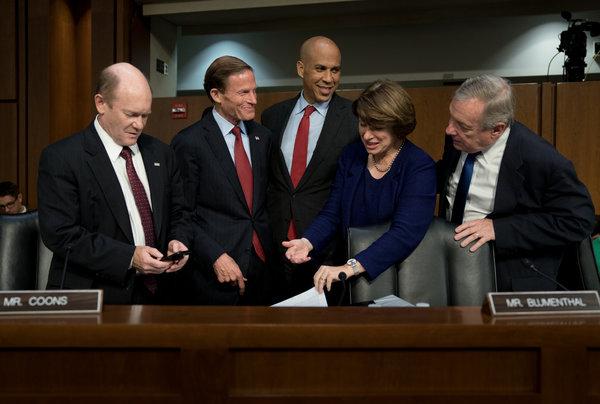Justice Prevailed
After one of the most intense political fights of the last two decades, Judge Brett Kavanaugh of the U.S. Court of Appeals for the D.C. Circuit has become Associate Justice Brett Kavanaugh of the United States Supreme Court. This is a good thing for the integrity of our Constitution, for elementary American norms, and for the long-term health of our political institutions.
Justice Kavanaugh has demonstrated throughout his career a firm adherence to a constitutionalist jurisprudence; indeed, that was the root of the opposition to him. He will undoubtedly stay true to this approach, which has guided him during his years on the D.C. Circuit and is evident in black and white in his hundreds of opinions. All of this was pushed to the side, though, in the final frenzy to destroy and defeat him.
At various points throughout the last two weeks, opponents of Kavanaugh’s have asked why the Republican party could not just “pick another judge.” Insofar as this inquiry was offered in good faith (it usually wasn’t), the answers should be obvious: Because we want each individual to be treated fairly and on the merits; because we do not regard accusations as tantamount to convictions; because there is nothing to be gained by establishing a heckler’s veto over the Senate’s nomination processes.
It is true, of course, that Judge Kavanaugh was not “on trial” in a formal sense. But that fact in no way undermines the practices and norms that mark formal trials. Presumption of innocence and an insistence on corroborating evidence are integral parts of our system because they work. Had the Democratic party prevailed in its attempt to set them aside, the precedent would have been disastrous.
Read the rest from the National Review editors HERE.







Comments are closed.